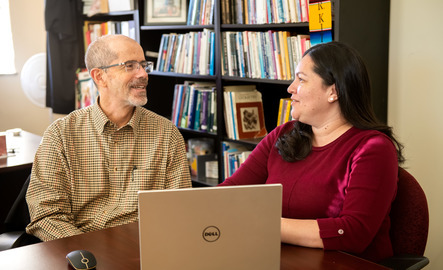About the Qualitative Research Methods Minor
Ready to pursue impactful research that excites you? We thought so!
The qualitative research methods graduate minor at UW is designed for students who
want to deepen their understanding of research and apply it in meaningful, real-world
settings. This program is especially valuable for those interested in careers in education,
research or academic leadership. Through a focused sequence of qualitative methods
courses, students explore research design, data collection and analysis while building
the skills needed to conduct and teach high-quality qualitative research. The minor
also offers valuable internship opportunities that provide hands-on experience and
mentorship. Whether you plan to teach college-level research courses or pursue a research-driven
career, this minor gives you the tools, experience and confidence to lead with clarity
and purpose.

Students must be enrolled in a graduate degree program to pursue a qualitative research methods minor.

What Can You Do with a qualitative research methods minor?
The qualitative research methods minor prepares students for a career in education and research. Most notably, this program is a great opportunity for students who want to teach foundational research courses in a college setting.
- Qualitative Analyst
- Qualitative Researcher
- Market Researcher
- Research Moderator
- Data Analyst
- Transcriptionist
- And many more!
Where UW grads are making an impact in the classroom:
- University of Colorado Anschutz Medical Campus
- Rutgers University
- Montana State University
- University of Windsor
- Colorado State University
- University of Utah
- University of North Dakota
Qualitative research methods are ways of exploring and understanding people's experiences, ideas and social contexts. Instead of focusing on numbers and statistics, qualitative research looks at things like language, behavior, emotions and culture to understand how and why people think and act the way they do. Common methods include interviews, focus groups, observations and content analysis. These approaches help researchers uncover patterns, meanings and deeper insights that might not show up in quantitative data.
The qualitative research methods minor prepares students for academic and research careers by offering advanced training in research design, data collection and analysis. Students gain hands-on experience through internships and projects that allow them to apply what they learn in real-world settings. The program also emphasizes teaching skills, making it ideal for those who want to instruct college-level research courses. By developing a deep understanding of qualitative methods and how to communicate research findings effectively, students leave the program ready to contribute to scholarly work, lead research initiatives and teach in higher education.

